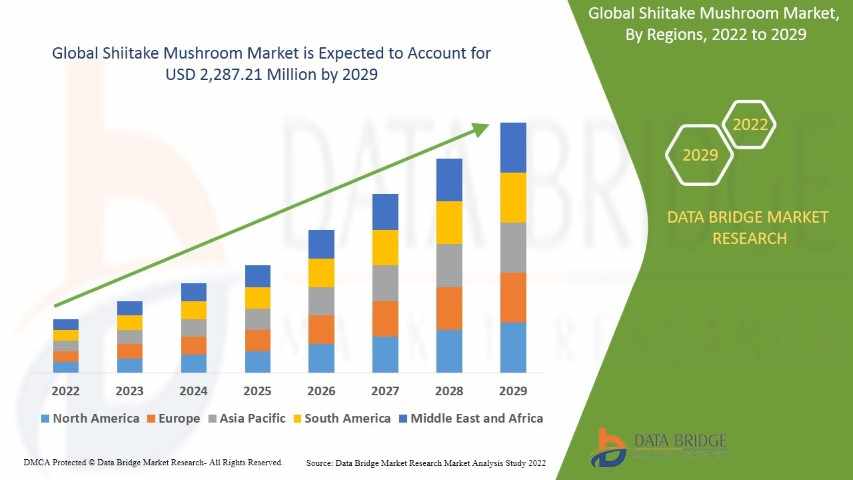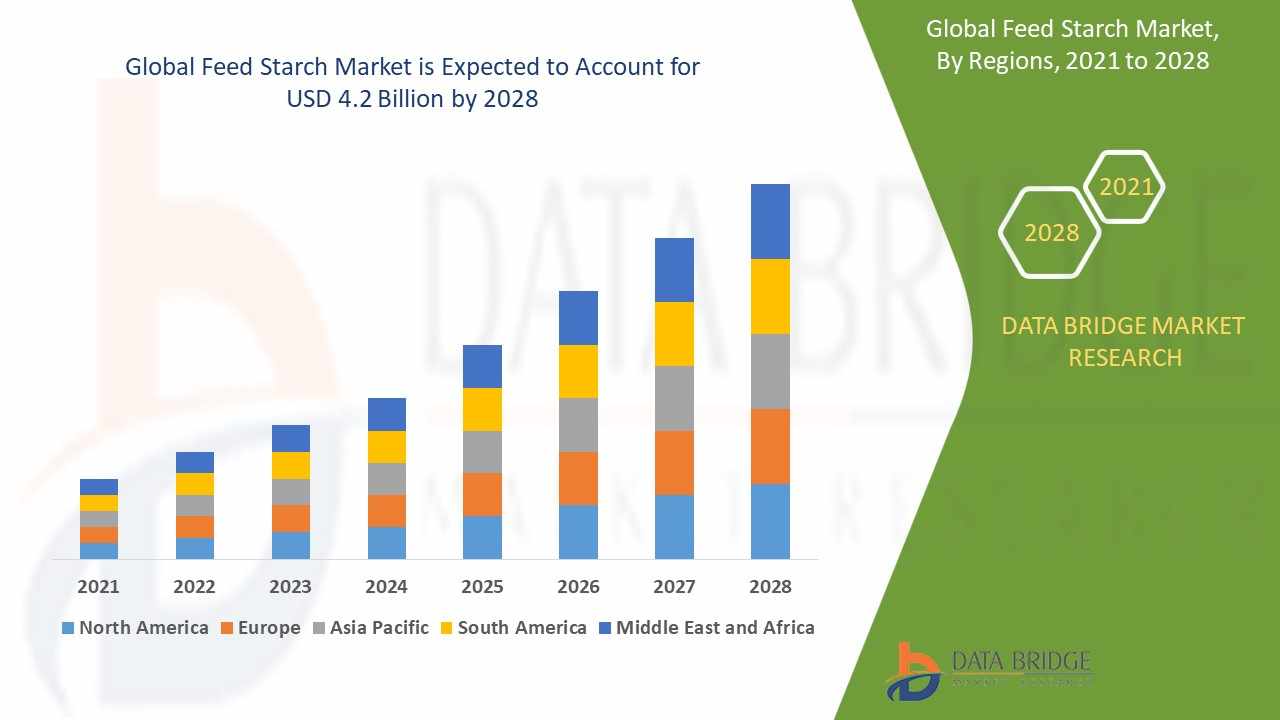
The Plant Hydrocolloids Market sector is undergoing rapid transformation, with significant growth and innovations expected by 2028. In-depth market research offers a thorough analysis of market size, share, and emerging trends, providing essential insights into its expansion potential. The report explores market segmentation and definitions, emphasizing key components and growth drivers. Through the use of SWOT and PESTEL analyses, it evaluates the sector’s strengths, weaknesses, opportunities, and threats, while considering political, economic, social, technological, environmental, and legal influences. Expert evaluations of competitor strategies and recent developments shed light on geographical trends and forecast the market’s future direction, creating a solid framework for strategic planning and investment decisions.
Get a Sample PDF of Report - https://www.databridgemarketresearch.com/request-a-sample/?dbmr=global-plant-hydrocolloids-market
Which are the top companies operating in the Plant Hydrocolloids Market?
The report profiles noticeable organizations working in the water purifier showcase and the triumphant methodologies received by them. It likewise reveals insights about the share held by each organization and their contribution to the market's extension. This Global Plant Hydrocolloids Market report provides the information of the Top Companies in Plant Hydrocolloids Market in the market their business strategy, financial situation etc.
CP Kelco U.S., Inc.; Cargill, Incorporated.; Dow; DSM; Ashland.; Symrise; Lonza.; Kerry Inc.; Ingredion Incorporated; ADM; DSM; FMC Corporation.; Tate & Lyle; Darling Ingredients Inc.; BASF SE; Glanbia plc; Nexira; Deosen Biochemical (Ordos) Ltd.; Exandal.; Fufeng Group Company Limited; AGARMEX, S.A. DE C.V.; by Altrafine Gums; ABCSteps Technologies Pvt. Ltd
Report Scope and Market Segmentation
Which are the driving factors of the Plant Hydrocolloids Market?
The driving factors of the Plant Hydrocolloids Market are multifaceted and crucial for its growth and development. Technological advancements play a significant role by enhancing product efficiency, reducing costs, and introducing innovative features that cater to evolving consumer demands. Rising consumer interest and demand for keyword-related products and services further fuel market expansion. Favorable economic conditions, including increased disposable incomes, enable higher consumer spending, which benefits the market. Supportive regulatory environments, with policies that provide incentives and subsidies, also encourage growth, while globalization opens new opportunities by expanding market reach and international trade.
Plant Hydrocolloids Market - Competitive and Segmentation Analysis:
Segments
- By Type: Guar Gum, Locust Bean Gum, Pectin, Carrageenan, Xanthan Gum, Agar, Others
- By Source: Seaweed, Microbial, Plant, Animal
- By Application: Food & Beverages, Pharmaceuticals, Cosmetics, Textile, Others
The global plant hydrocolloids market is segmented based on type, source, and application. In terms of type, the market is categorized into guar gum, locust bean gum, pectin, carrageenan, xanthan gum, agar, and others. The source segment includes seaweed, microbial, plant, and animal-derived hydrocolloids. Furthermore, in the application segment, the market is divided into food & beverages, pharmaceuticals, cosmetics, textiles, and others. The increasing demand for natural and plant-based ingredients across various industries is propelling the growth of the plant hydrocolloids market.
Market Players
- Cargill, Incorporated
- Archer Daniels Midland Company
- DuPont
- Ingredion Incorporated
- Kerry Group
- CP Kelco
- Ashland
- Koninklijke DSM N.V.
- BASF SE
- FMC Corporation
Key market players in the global plant hydrocolloids market include Cargill, Incorporated, Archer Daniels Midland Company, DuPont, Ingredion Incorporated, Kerry Group, CP Kelco, Ashland, Koninklijke DSM N.V., BASF SE, and FMC Corporation. These companies are focusing on product innovation, strategic partnerships, and expansions to enhance their market presence and cater to the evolving consumer preferences. The competitive landscape of the market is intense, with players adopting various growth strategies to gain a competitive edge in the market. The increasing R&D investments and the rising demand for clean-label and natural products are driving the market growth for plant hydrocolloids.
The global plant hydrocolloids market is witnessing significant growthThe global plant hydrocolloids market is experiencing robust growth, driven by the increasing consumer preference for natural and plant-based ingredients across various industries. Plant hydrocolloids such as guar gum, locust bean gum, pectin, carrageenan, xanthan gum, agar, and others are gaining traction due to their functional properties and applications in food & beverages, pharmaceuticals, cosmetics, textiles, and other sectors. The demand for clean-label products and the shift towards sustainable and eco-friendly ingredients are contributing to the expanding market for plant hydrocolloids.
Key market players such as Cargill, Archer Daniels Midland Company, DuPont, Ingredion Incorporated, and others are actively involved in product innovation and strategic alliances to capitalize on the growing market opportunities. These companies are investing in research and development activities to introduce novel plant hydrocolloid products that meet the evolving consumer needs and regulatory standards. Additionally, collaborations and partnerships with suppliers, manufacturers, and distributors are enabling market players to strengthen their distribution networks and enhance their market reach.
The food & beverages industry represents a significant application segment for plant hydrocolloids, driven by the increasing demand for natural thickeners, stabilizers, and gelling agents in food products. Plant hydrocolloids are widely used in dairy products, bakery items, beverages, sauces, dressings, and confectionery to enhance texture, viscosity, and shelf-life. Moreover, the pharmaceutical and cosmetic industries are also adopting plant hydrocolloids for their emulsifying, film-forming, and binding properties in various formulations.
The source of plant hydrocolloids, including seaweed, microbial, plant, and animal-derived sources, plays a crucial role in determining the quality and functionality of the hydrocolloid products. Seaweed-derived hydrocolloids such as carrageenan and agar are preferred for their gelling and thickening properties, while microbial and plant-derived hydrocolloids like xanthan gum and pectThe global plant hydrocolloids market is poised for substantial growth in the coming years due to several key factors. One of the primary drivers of market expansion is the increasing consumer preference for natural and plant-based ingredients. Consumers are becoming more conscious of the ingredients in their food, cosmetics, pharmaceuticals, and textiles, leading to a higher demand for plant hydrocolloids. These ingredients are perceived as healthier, more sustainable, and environmentally friendly, aligning with the growing trend towards cleaner labels and eco-friendly products.
Moreover, the functional properties of plant hydrocolloids are essential contributors to their rising popularity across various industries. Guar gum, locust bean gum, pectin, carrageenan, xanthan gum, and agar offer unique functionalities such as thickening, stabilizing, gelling, and emulsifying properties, making them valuable additives in a wide range of applications. In the food and beverages sector, plant hydrocolloids are utilized to improve texture, viscosity, and shelf-life in products like dairy, bakery items, sauces, and confectionery.
The pharmaceutical and cosmetic industries also present significant opportunities for plant hydrocolloids. These industries leverage the film-forming, emulsifying, and binding properties of hydrocolloids to enhance the performance and stability of formulations. Plant hydrocolloids are finding increasing application in drug delivery systems, skincare products, hair care formulations, and other cosmetic preparations. The versatility of plant hydrocolloids makes them adaptable to
Explore Further Details about This Research Plant Hydrocolloids Market Report https://www.databridgemarketresearch.com/reports/global-plant-hydrocolloids-market
Key Benefits for Industry Participants and Stakeholders: –
Industry drivers, trends, restraints, and opportunities are covered in the study.
Neutral perspective on the Plant Hydrocolloids Market scenario
Recent industry growth and new developments
Competitive landscape and strategies of key companies
The Historical, current, and estimated Plant Hydrocolloids Market size in terms of value and size
In-depth, comprehensive analysis and forecasting of the Plant Hydrocolloids Market
Geographically, the detailed analysis of consumption, revenue, market share and growth rate, historical data and forecast (2024-2028) of the following regions are covered in Chapters
The countries covered in the Plant Hydrocolloids Market report are U.S., Canada, Mexico, Brazil, Argentina, Rest of South America, Germany, Italy, U.K., France, Spain, Netherlands, Belgium, Switzerland, Turkey, Russia, Rest of Europe, Japan, China, India, South Korea, Australia, Singapore, Malaysia, Thailand, Indonesia, Philippines, Rest of Asia-Pacific, Saudi Arabia, U.A.E, South Africa, Egypt, Israel, and Rest of the Middle East and Africa
Detailed TOC of Plant Hydrocolloids Market Insights and Forecast to 2028
Part 01: Executive Summary
Part 02: Scope Of The Report
Part 03: Research Methodology
Part 04: Plant Hydrocolloids Market Landscape
Part 05: Pipeline Analysis
Part 06: Plant Hydrocolloids Market Sizing
Part 07: Five Forces Analysis
Part 08: Plant Hydrocolloids Market Segmentation
Part 09: Customer Landscape
Part 10: Regional Landscape
Part 11: Decision Framework
Part 12: Drivers And Challenges
Part 13: Plant Hydrocolloids Market Trends
Part 14: Vendor Landscape
Part 15: Vendor Analysis
Part 16: Appendix
Browse More Reports:
Middle East and Africa Personal Watercraft Market – Industry Trends and Forecast
North America Personal Watercraft Market – Industry Trends and Forecast
Thailand Business Process Outsourcing (BPO) Market – Industry Trends and Forecast
Europe Phosphorus and Derivatives Market – Industry Trends and Forecast
Asia-Pacific Phosphorus and Derivatives Market – Industry Trends and Forecast
Middle East and Africa Phosphorus and Derivatives Market – Industry Trends and Forecast
North America Phosphorus and Derivatives Market – Industry Trends and Forecast
Europe Hummus Market – Industry Trends and Forecast
Asia-Pacific Hummus Market – Industry Trends and Forecast
Middle East and Africa Hummus Market – Industry Trends and Forecast
North America Hummus Market – Industry Trends and Forecast
Europe Hospital Workforce Management Software Market – Industry Trends and Forecast
Asia-Pacific Hospital Workforce Management Software Market – Industry Trends and Forecast
Middle East and Africa Hospital Workforce Management Software Market – Industry Trends and Forecast
North America Hospital Workforce Management Software Market – Industry Trends and Forecast
Data Bridge Market Research:
Today's trends are a great way to predict future events!
Data Bridge Market Research is a market research and consulting company that stands out for its innovative and distinctive approach, as well as its unmatched resilience and integrated methods. We are dedicated to identifying the best market opportunities, and providing insightful information that will help your business thrive in the marketplace. Data Bridge offers tailored solutions to complex business challenges. This facilitates a smooth decision-making process. Data Bridge was founded in Pune in 2015. It is the product of deep wisdom and experience.
Contact Us:
Data Bridge Market Research
US: +1 614 591 3140
UK: +44 845 154 9652
APAC: +653 1251 978




















Write a comment ...